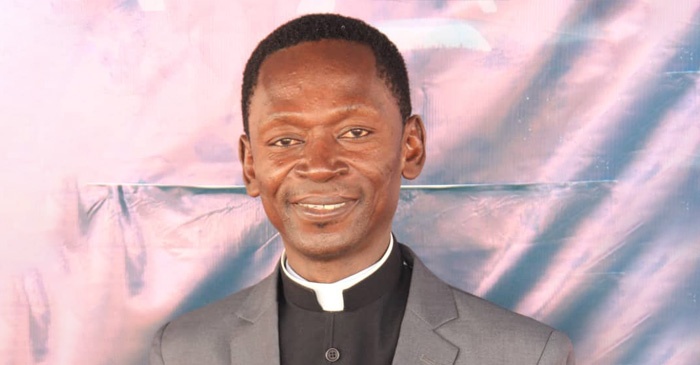Churches worldwide are not lacking preachers. The message about Christ Jesus is in abundance in our auditoriums and streets. There is a high intensity of prayer; prayer commandos, prophetic, and deliverance ministers abound in almost every Christian nation of the world. However, the shortage and the demand are the startling lack of the basic foundation task of being a disciple and making one a disciple.
Inspired by Apostle Eric Nyamekye’s messages on the church being unleashed into the world to transform their spheres, and reflecting over my seven years’ experience as a Missionary, I am convinced that there is a need for believers to distinguish between being a church member and becoming a disciple, as well as understanding the relationship between the empowerment of the Spirit and the mission of the church to be unleashed into the world.
The Lord, in His infinite wisdom, poured out the Holy Spirit on the day of Pentecost when there were people from different nations, languages, colours, and races gathered in Jerusalem. Through the empowerment of the Spirit, over three thousand of them believed in the Lord Jesus Christ after Peter’s sermon. These people witnessed the power of the Holy Spirit that enables individuals to speak in languages and tongues they had never learned.
They saw the power of the Spirit that convicted them to believe in Christ and experienced the good tidings of the gospel in their hearts. Through the empowerment of the Spirit, they were unleashed into their nations, towns, and cities, preaching the gospel of the Lord Jesus Christ.
God intentionally sent the Holy Spirit on the occasion when people from all spheres of life were gathered so that the people would believe the gospel and be unleashed with the power of the Spirit into their spheres to transform it.
It is evident from the scriptures that God unleashed diverse people on the day of Pentecost. Some were uneducated; others were educated; some were business people; others were influential and the like.
The Spirit of Pentecost is both an Empowering Spirit and a Missionary Spirit, so He unleashed the people into the nations. Those who scattered were not only apostles, prophets, and teachers, but there were laymen too who did not even have any personal encounters with Christ during his time.
The work of spreading the gospel and saving the nations of the world demands two things:
- the outpouring of the power of the Spirit,
- And a large number of believers (disciples) of different backgrounds, races, languages, color, Profession, etc., unleashed (scattered) into the world.
The outpouring of the Holy Spirit on the day of Pentecost makes God’s intention clear that the saving of nations and transforming society demand people of different backgrounds not restrained to a particular place but scattered abroad. Teachers, farmers, politicians, drivers, fashion designers, governors, security officers, bankers, doctors, nurses, publishers, and all others are needed on the field.
The church may intentionally send a missionary into a nation or an institution, but the Holy Spirit is always unleashing a large number of believers who have become disciples of Christ into offices, schools, towns, cities, and nations as missionaries. These are missionaries not of denominations or rank but missionaries of a common mandate.
The unleashing field, the missions front, always needs and accepts a variety of talents, gifts, and people. If discipleship that is confined to the walls of buildings demands gifted leaders, then the work of transforming the nations demands the greatest of all gifts.
There is no appropriate way of transforming society if we do not accept that the Spirit uses everything that one possesses to accomplish the work.
In the church at Antioch, there were Paul, Barnabas, these two who appear to be great leaders and pillars of the church and three others Simeon, called Niger, Lucius of Cyrene and Manaen whose names only appeared here in the Bible. But the Holy Spirit said, ‘separate for me Paul and Barnabas’. Why did the Spirit choose the seemingly pillars of the church and not the others less known? It could be that if it was a matter of choice, Paul and Barnabas might not be considered first.
At the beginning of the church, the Spirit scattered both the clergy and the layman; but in Antioch, the Spirit chose Paul and Barnabas who were influential in the church. In the same way, the Spirit is calling on the educated, the influential, the lawyers, the judgers, the prominent in society, and other classes of people to be unleashed into the nations as missionaries not of qualification but of a divine calling for transformation. The Spirit that unleashes not only empower the weak to be strong to do the work of missions but also sharpens the talents, skills, knowledge, and wisdom of men of influence to use them to transform their spheres.
Consider, brethren, the work of transforming a society clouded with corruption, ignorance, superstition, pride, etc. Does it require a few hands, skills, knowledge, and intelligence? If the power of the Spirit, talents, and skills are needed anywhere in the kingdom of God, then the people unleashed to transform society need them more.
Until the church and all believers accept that the Spirit of Pentecost is an empowering and missionary Spirit, many will remain dormant even when they are scattered abroad. The work of transforming a society that ‘sees every behaviour as accepted’ is enormous and demands many hands, more hands, and many more hands. A vision bearer, a few leaders or ministers cannot meet the full demands of the work.
Every believer must come on board. There cannot be passive involvement. Giving offerings alone is not enough; to a large extent, a personal commitment to enlistment of prayer and going into the field is required.
Written by Pastor Charles Boadi (Ashaley Botwe District Minister & Former Missionary to Eswatini)

















